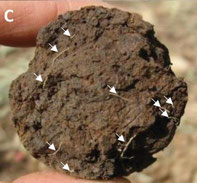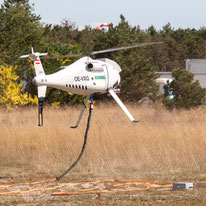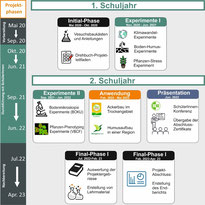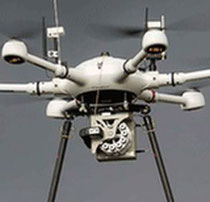National & International Research Projects
Research Projects. Over the years, Vienna Scientific Instruments (VSI) has been actively involved in various research projects, both nationally and internationally, in collaboration with academic institutions and other industrial partners. By participating in research projects, VSI has gained valuable insight into the latest trends and technologies in various fields of scientific instrumentation. These insights have enabled VSI to develop cutting-edge products that meet the needs of researchers and industrial customers alike. Vienna Scientific has also gained a deep understanding of the complex challenges faced by researchers in various fields and has been able to provide customized solutions to meet these challenges. One of the key benefits of participating in research projects for Vienna Scientific has been the opportunity to collaborate with leading researchers and institutions around the world. This has enabled VSI to build strong relationships with key players in the respective fields and develop a network of contacts and resources that can be leveraged to further research interests. Overall, VSI's participation in research projects has been a key driver of its success in the scientific instrumentation market. Read more about the expected benefits of cross-sectoral R&D for economies, and have a look at selected current and past R&D&I projects of Vienna Scientific below. An overview on activities at scientific meetings and publications of your staff members can be found at the related webpage. Do not hesitate to contact us to discuss a potential joint proposal - we are here to help you prepare the proposal and, if successful, to deliver innovative technologies!
Collaboration in Cross-Sectoral Research, Development & Innovation Projects

The active involvement of commercial companies in research and development activities is a key factor in Europe's development. Vienna Scientific is fully committed to the Triple Helix concept of university-industry-government relationships - illustrating the necessary shift from an industry-government dyad in the industrial society to a growing triadic university-industry-government relationship in the knowledge society. Get in contact to develop a joint, multidisciplinary, cross-sectoral proposal!
Field Root Phenotyping of Barley - BarleyMicroBreed EU Project

Within the EU BarleyMicroBreed project, we are creating a portable fluorescence root imaging system for BOKU Vienna. This system aims to automate root counting in barley phenotyping, analysing soil cores from 600 barley varieties directly in the field. The lighting system will be fine-tuned to generate high-contrast images of roots emerging from the cores. Past work with wheat has demonstrated that the correlation of measurements with root length density in (washed) soil cores can surpass that of human operators, leading to increased throughput.
Semi-Autonomous Chemical Air Sensing System - C-SALS Project

The C-SALS project aims to create an adaptable UAV-based reconnaissance system for enhancing tactical mission planning. It will feature a versatile sensor suite, including on-board gas sensors, a high-performance stand-off detector, retractable air sampling devices, and a high-precision laser scanner mounted on a robust UAV. This system is suitable for diverse missions, ranging from environmental monitoring to police and military operations.
Automatising Minirhizotron Image Acquisition and Analysis - NextMR-IAA ATTRACT Project

The EU H2020 ATTRACT call funded breakthrough ideas in detection and imaging technologies. Our NextMR-IAA project will combine imaging technology, mechatronic automation and image analysis technology in a unique and highly innovative way to significantly advance UHD minirhizotron camera technology for in situ root analysis. In detail, the NextMR-IAA project will 1) combine state-of-the-art imaging sensors (UHD VIS and certain near infrared (NIR) wavebands) with MR imaging automation to allow for effective and precise imaging of roots, and 2) will develop machine learning-based approaches to automatically segment & classify roots. See the VSI ATTRACT web-page for details.
Novel Root Imaging Technologies (for Arctic Environments) - FutureArctic EU Project

The objectives of Vienna Scientific in the H2020 project 'FutureArctic' (Marie Sklodowska-Curie Action, Innovative Training Network) are 1) to develop an an autonomous, permanently installed and remote-controllable automatic minirhizotron (MR) imaging systems suitable for arctic environments, 2) to identify multi-spectral wavelength (ranges) allowing for enhanced segmentation and species-specific differentiation of (three exemplary) arctic target root systems, and 3) to conceptualise the implementation of multi-spectral imaging beyond VIS in MR imaging systems. Please see the VSI FutureArctic webpage and the FutureArctic consortium website for details.
Humus and Climate Awareness at Austrian Schools - HuLK Project

Within the HuLK Humus project, school students will work as researchers and, under the guidance of scientists, will gradually approach topics such as humus, climate change, soil and agriculture. They will learn to better understand processes (CO2 emissions, soil as a CO2 store, humus as an adaptation to climate change for crops in agriculture) and how to translate this knowledge into practical solutions.
Remote Gas Sampling - Iso-Drone Projects

Currently, atmospheric sampling for gas emission measurements requires the construction of towers or the hiring of aircraft - capital-intensive methods. Easy access to unmanned aerial vehicles (UAV, "drones") has opened up new possibilities for remote gas sampling (e.g. greenhouse gases, VOCs and water vapor). The aim of the Iso-Drone projects was to develop, test and produce modular UAV-based gas sampling and monitoring systems for emission and isotope measurements. Please find further information on the ISOdrone project site.
Push Down Root Detection Probe - PHENET Project

Teaming up with BOKU and S4 mobile laboratories in the PHENET project, our priority is developing a virtually groundbreaking root imaging probe. This automated tool aims to detect roots as it penetrates the soil, providing real-time calculations for root length density, rooting depth, and soil density. Positioned as an advanced root phenotyping tool, it seeks to close the existing methodological gap between soil coring and minirhizotron imaging.
Cross-Sectoral Research and Training - Searching Project Partners

Vienna Scientific Instruments is highly interested in participating as a partner or beneficiary in cross-sectoral research and training activities at the national (Austrian), European and international level. We are also interested in hosting Early Stage Researchers (ESR; who can enroll for PhD studies at several world-class universities in Vienna), short and long term secondments of academic staff at any career stage from PhD students to senior researchers as "Entrepreneurs in Residence" (EIR), and participating with our engineering staff in R&D&I calls and exchange programs for research and innovation staff. We have experience in writing and submitting grant proposals to Austrian (e.g. "Iso-2-Drone", "C-SALS", FFG, Austria) and European partner organizations (e.g. "FutureArctic" proposal, Marie Sklodowska-Curie Action, Innovative Training Network, FP7, H2020, Horizon Europe) and have implemented many successful industry-academia projects. Please contact us if you would like to discuss opportunities for joint projects.
